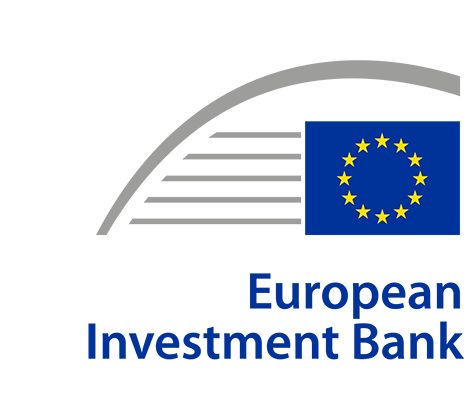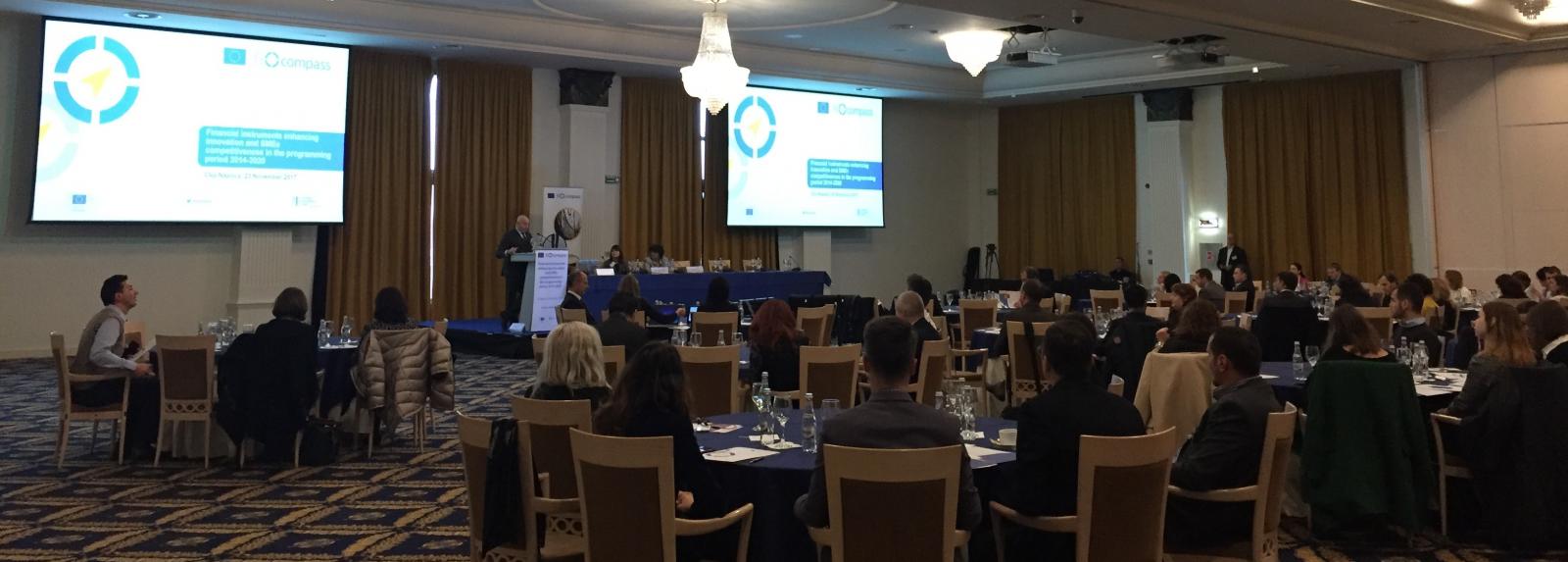Financial instruments enhancing innovation and SME competitiveness in the programming period 2014-2020
Details
- Date:
- Location: Cluj-Napoca
- Type: Workshop
- Registration required: Yes
The third workshop within the fi-compass series of Member State specific events, ‘Financial instruments enhancing innovation and SME competitiveness in the programming period 2014-2020' was organised on 23 November 2017 in Cluj-Napoca, Romania.
The full-day event focused on financial instruments supporting SME competitiveness and was attended by representatives from managing authorities, regional development agencies, financial intermediaries and other stakeholders interested in the topic of financial instruments in the programming period 2014-2020 in Romania.
The workshop had the following objectives:
- Providing participants with an opportunity to learn from the experience of other Member States and regions in implementing risk capital financial instruments linked to enhancing innovation and SME competitiveness in the programming period 2014-2020;
- Creating a forum for participants to share their own experience and progress in implementing risk capital financial instruments;
- Offering a practical insight for SMEs about the financial instruments they could benefit from in the upcoming years;
- Enabling participants to exchange on a peer-to-peer basis with the speakers and other participants on how to deal with technical challenges they are facing at the moment regarding the design, set-up and implementation of a financial instrument.
The workshop was opened by Iulia-Mirela Şerban, Programme Manager, Directorate-General for Regional and Urban Policy (DG REGIO), European Commission and Aneta Stoica, Ministry of Regional Development, Public Administration and European Funds, Romania. Bruno Robino, Head of fi-compass, acted as the moderator.
Practical insights from the following case studies about the use of financial instruments supporting SME competitiveness were presented by experts from the respective Member States and regions during the workshop:
- Bulgaria’s experience in using risk capital financial instruments – presented by Kalin Marinov, Deputy Director of Directorate General ‘European Funds for Competitiveness’, Ministry of Economy, Bulgaria, Velina Popova, State expert, ‘Programing, monitoring and evaluation of the OP’ Department, Directorate General ‘European Funds for Competitiveness’, Ministry of Economy, Bulgaria, Stefan Tzalov, European Investment Fund (EIF) and Rumen Iliev, Partner, LAUNCHub, Bulgaria
- ’Access to Finance Solutions for SMEs’ in Northern Ireland – financial instruments for SME support in the form of equity – presented by Charles Hamilton, Head of EU Programmes, Invest Northern Ireland
- Financial instruments for social inclusion and entrepreneurship under ESF: Mikromezzaninfonds, Germany – presented by Susanne Hauck, Investment and Development Bank of Lower Saxony (NBank), Germany.
In the course of these case study presentations, participants had the opportunity to discuss technical aspects of the design and implementation of financial instruments supporting SME competitiveness as well as other practical questions with the experts.
Furthermore, participants could broaden their understanding of the Venture Capital (VC) sector through an interactive peer-to-peer discussion and Q&A session, facilitated by Luigi Amati, Chairman of META Ventures and Chairman of Business Angels Europe, with Pablo Millan, Head of Division, EIF and the case study presenters from Bulgaria and Northern Ireland.
In the afternoon, special focus was given to ESIF financial instruments in Romania:
- Romania’s experience, results achieved and lessons learnt from deploying financial instruments in the 2007-2013 programming period, as well as the state of play in the 2014-2020 programming period were presented by Aneta Stoica, Ministry of Regional Development, Public Administration and European Funds, Romania
- An overview on the planned financial instruments in Romania in the 2014-2020 programming period, with special focus on the progress in setting up financial instruments under Competitiveness Operational Programme in the Thematic Objective 1 (TO1) ‘RDI’ (accelerators and PRSL), and the Regional Operational Programme in the Thematic Objective 3 (TO3) ‘Enhancing SME competitiveness’ (equity), as well as the practical application of the selection process of financial intermediaries, were subsequently presented by Camelia Dragoi and Stefan Tzalov, EIF.
Participants made also use of the last Q&A session moderated by Bruno Robino, to discuss their final questions related to ESIF financial instruments. This session rounded off the fi-compass workshop in Cluj.
According to the participants’ feedback, the audience found the content of the workshop relevant and useful and appreciated the opportunity of peer-to-peer discussions with experts participating in this workshop.


